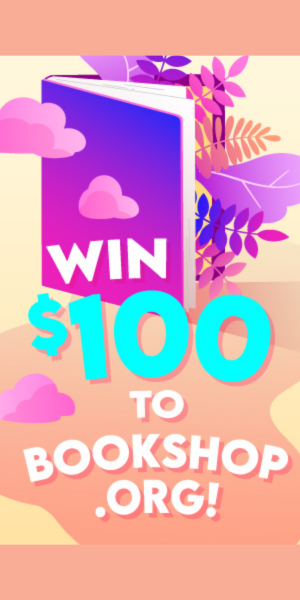
A New Era for Banned Books Week: Book Censorship News, August 2, 2024
This week, we’ve got a guest post from Maggie Tokuda-Hall, cofounder and national team leader for Authors Against Book Bans. In addition to the call to action around next month’s annual Banned Books Week offered below, here’s your reminder of how you can fight book bans and censorship. Remember to check your voter registration or get registered to vote if you aren’t, and spend time with your down-ballot candidates. Here’s a handy list of candidates who have pledged to support the mission of groups like Moms for Liberty to help you weed out those most dangerous to intellectual freedom and individual autonomy (current as of July 25).
The fight against book bans has changed dramatically since Banned Books Week was started by the American Library Association in 1982. Book bans have always ebbed and flowed along with moral panics in the United States. But gone are the comparatively quaint days of banning Scary Stories to Tell in the Dark for being too, you guessed it, scary.
Now, bans don’t just seek to pull purportedly “offensive” content from the shelves. It’s to defund the shelves they sit on, in any institution of public learning that was funded enough to have shelves. The dark money, far-right extremists that favor bans have learned to capitalize on easily inflamed bigotries against LGBTQ+ and BIPOC creators who have only just been allowed entrance to the literary world. But, perhaps most infuriatingly of all, this has been accomplished through a contagious and pernicious lie: that there is pornography in the kids’ section. And that teachers and librarians are pedophiles, bent on grooming our children for sexual abuse.
A horrifying prospect! If it were true.
It’s not. But that doesn’t seem to matter. That these are life-ruining accusations has not slowed down anyone bent on banning books. Nationwide our fellow citizens spring up, deputized by their fear and resentment, and lob these bombs onto educators just doing their jobs. It’s a neat bit of psychological warfare. Because as soon as you have to say “I’m not a pedophile!” you sound, unfortunately, just like a pedophile. And so institutions scramble to respond, wasting massive amounts of time and energy in institutions already short on funding and staff, fear spreads, and whole communities of educators are brought to heel and quietly start to censor themselves.
The argument is, of course, that they are just protecting the children. That’s why Huntington Beach, California’s public library is having every single one of their children’s books— from board books to young adult— relocated out of the children’s section until they are audited for pornography. That’s why the public library in Donnelly, Idaho will be “adults only” starting this July. That’s why, apparently, it could soon be illegal to be a member of the American Librarian Association in Louisiana. This is why Project 2025 calls for all teachers and librarians who grant access to books about queer lives to be registered as sex offenders, and for all schools that teach “critical race theory” to be stripped of federal funding. To protect the children?
This is a lie, too. No child is safe in a classroom stripped of its books when someone with an unregulated AR-15 comes to school. Never mind that pornography is easily sought on the internet, with just a couple key words, and that most children spend more time with their devices than they do in the public library. Ignore the very real accusations of grooming that come from various religious organizations. Because this was never about the children.
I loathe to admit it, but it’s a genius bit of long-term strategy. Make a career in public education and learning toxic? Make the dissemination of information and narrative a criminal offense? You’ve just destroyed the most effective path to any progress in equality, sure, but that’s just a side effect of all the money you’re going to make from charter schools and vouchers and privatized libraries that charge outsized fees for consultation on the very work librarians have been quietly accomplishing for decades.
Not even to mention that you’ve also just decimated the opportunity for cross-group solidarity. Education and narrative are the most powerful tools for liberation. That is precisely why they’re not just expendable, but targeted. That these bans also create a framework for doing physical harm to marginalized people (including children) is just a welcome bonus.
So what do we do?
Firstly, we stop kidding ourselves. This is a fight we’re losing.
But it’s a fight that requires intimidation for success. And where communities stand against bans, the bans—and the politicians who exploit them for expedience and power—recede.
So. Secondly, we act.
Every year in September, libraries, independent bookstores, and schools all over the country celebrate Banned Books Week. Often, there’s a display put up with a hand-lettered sign featuring beloved and historically banned books like To Kill a Mockingbird, and Captain Underpants. But the time to quietly erect a display has come and gone. We are fighting a new fight now, one that depends on our fear. It is time to fight accordingly. It’s time to be brave.
After all—what have we been learning in the library for our whole lives? GK Chesterton knew: “Fairy tales do not tell children dragons exist. Children already know dragons exist. Fairy tales tell children that dragons can be killed.”
As a founding member and national leadership team member of Authors Against Book Bans, I am so proud to suggest a list of action-oriented events we are suggesting to our membership, but also the literary community at large. Whether you’re a school, a book club, or an indie bookstore, or just a group of people who care a lot. Each of these events will put the focus on communities in need, the city hall, school board, and state legislatures where the decisions around book bans are made, and the down-ballot voting that is our most effective tool at winning this fight long-term.
Make being a book banner an unelectable offense, and we still stop seeing candidates use bans as a springboard for their own political relevance. Show book banners that we are not afraid of them, and they too will scurry back to the shadows of irrelevance where they belong.
This year, Banned Books Week will take place from September 22-September 29 and we are hoping it will be the most impactful Banned Books Week yet. It’s an invitation to all of us to put a spotlight on this issue and use it as a galvanizing force to protect our children. Not from the books like Everyone Poops (which was banned for being pornographic in Huntington Beach. Yes, seriously) but from the forces that would see our children cheated of a wiser, bigger, more resilient version of themselves. That we should lose this fight and cede public education to far-right extremists is not a foregone conclusion. The vast majority of Americans disagree with book banning. But similarly, the vast majority of Americans aren’t paying attention to book banning.
So. Panels are helpful for raising awareness. Displays can move titles that often get forgotten. By all means, do those, too. But this year, Authors Against Book Bans suggest that we focus on concrete actions like these:
- Statehouse, Town Hall, or Public Library Read-In: This kind of event is great to build community around this issue, and to protest bad legislation or decisions that have been made, or to call attention to the issue where there is legislation coming to the floor (such as OH or CA). It builds community around the issue and can also be a venue for a banned book drive if a local indie bookstore is willing. You can either have the event at one of these public places or you can have the event at a bookstore and then lead a banned-book march to the public place.
- Postcard/Letter writing party to support librarians/school leaders/legislators: Host a party to write and send postcards to the librarians at each school and local branch in your district telling them you are in their corner and that librarians are not alone to celebrate their hard work for leading the fight for the freedom to read.
- Banned book sale/drive to ship to a community in need: Raise funds or physically sell books to be shipped or taken to a community in need. You can also do this in places where book bans are a problem. This can be done in front of a city hall or statehouse to draw attention, or at an independent bookstore.
- Voter registration event: For these events, you are just collecting and encouraging voter registration with the goal of increasing turnout and communicating the necessity of “down ballot” voting, ie: voting on things other than the presidential campaign, which is considered the top of the ticket.
Lastly, no matter who you are, or how isolated you may be in your community on this issue right now, please know: you are not alone. None of us are alone in this fight. There’s a proud tradition of those who have fought for the freedom to read, and now we are all a part of that tradition. The literary community is, absolutely for the better, in this together. We are a powerful, passionate, smart group of people. We know more, because we’ve taken the care to actually read. And, most importantly, there are more of us than there are of them.
This is a fight we can win.
Book Censorship News: August 2, 2024
This might be the quietest book censorship news roundup in a while, but don’t take it for granted. There’s plenty of news right now on school board candidates in districts which will be voting, so if you’re in one of those states, get to know your local slate this week. Likewise, school will be amping up in the next few weeks, and we know that the book banners have used this time to plan their next moves.
- There’s a new lawsuit against book banning. This time, it’s against the new Idaho law.
- A proposal to ban books in Knox County, Tennessee, schools, has failed.
- A professor believes book challenges in Catawba County schools (NC)—which have been going on for 2+ years at this point—can lead to economic disaster for the area and that professor is not wrong. Who wants to move where their rights are limited or challenged?
- Since 2021, Florida has seen a 148% increase in book bans (that we know of).
- Mission Independent School District (TX), which agreed to remove nearly 700 books after a pastor complained, is now saying they actually won’t remove them. It’s kind of hard to believe that.
- There’s a new trustee on the Lincoln City Public Library (NE) board and she doesn’t sound like she’s pro-book banning. But the story itself mentions that the public library has dealt with several challenges…all to the books you’d expect them to be about.
- “A group challenging restrictive policies at the Autauga-Prattville Public Library [AL] last week renewed its call for a federal court to block those policies, arguing recent changes by the library do not address their concerns.” The ‘changes’ made by the board were not any less terrible.
- Crook County Public Library (OR) is dealing with an onslaught of challenges to LGBTQ+ material. Check the quote here from the woman whose bigotry is so blatant she refuses to be on camera for fear of being recognized. The library director here is firm in not wanting to create a separate LGBTQ+ shelf—as she should be. A decision on the future of these books could come Thursday evening [post-publication of this roundup].
- Hampton University (VA) received a bomb threat to its library. This is the fourth university library bomb threat in two weeks. I wonder when someone else will be covering this because that’s not normal.
- This is the kind of journalism I want to see so much more of: how students in the Houston area (TX) are taking on school boards.
- Last week, the Alpena County Board of Commissioners (MI) dissolved the public library board because they were unhappy the board wouldn’t remove LGBTQ+ books. Now, residents are organizing to get the board back and protect their library.
- Huntsville-Madison County Public Library (AL) is trying to decide where and how to comply with the state’s new requirements to get financial aid. This is a really good piece and conversation they have about the position the state has put them in. The public library also dealt with a challenge to All Boys Aren’t Blue this week, and the board elected to keep it in the YA section where it belongs.
- Jeannette Public Library (PA) received a bomb threat this week.
- Thunder Bay Public Library (Ontario, Canada) received a bomb threat this past weekend related to a story time with drag queens event.
- Could the new state law in South Carolina undo the work done in Beaufort Public Schools, where most of the almost 100 books challenged were retained?
- Several books in Citrus County Public Library (FL) were moved from the young adult area to the adult area. One book—Jack of Hearts (and Other Parts)—was banned, while three that were challenged are “missing.” Still others will remain where they belong. Again, this is a public library.
- It’s Still Censorship, Even If It’s Not a Book Ban: Book Censorship News, August 30, 2024
- Are You Registered to Vote?: Book Censorship News, August 23, 2024
- What Is Weeding and When Is It Not Actually Weeding?: Book Censorship News, August 16, 2024
- How To Explain Book Bans to Those Who Want To Understand: Book Censorship News, August
- The Ongoing Censorship of High School Advanced Placement Courses: Book Censorship News, July 26, 2024
- The Quiet Censorship of Pride 2024: Book Censorship News, July 19, 2024
- Survey: What Happened During Pride Month? Book Censorship News for July 5, 2024
- The First American Union Understood The Necessity of Public Libraries and Education: Book Censorship News for June 28, 2024
- Here Come The Public School Closures: Book Censorship News, June 21, 2024








